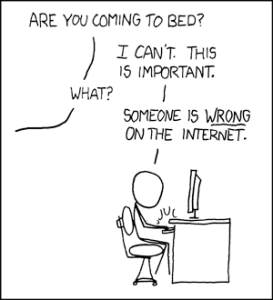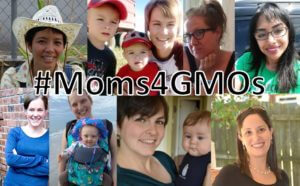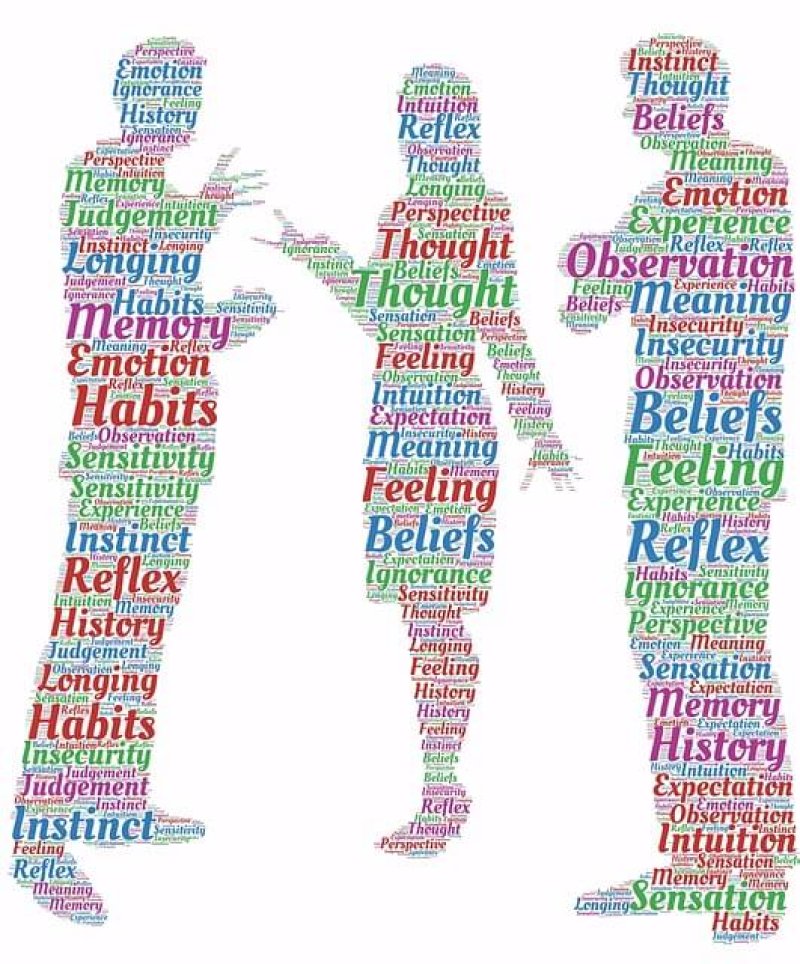Genetic engineering of food is a controversial topic that stirs up a lot of emotions. How should we talk about it? Will anything we say make a difference?
I think a useful perspective comes from framing the question somewhat differently: Can the way we behave in our interactions with others make a difference in how people consider controversial subjects?
Let me explain. When I first encountered harsh skepticism toward GMOs — at a Facebook mommy-group — I pasted several links to scientific sources to help address the participants’ concerns. All in a friendly manner. But the thread went south. The original poster called me a bully for posting five links during the discussion!). I was stunned. I stated that I was not trying to push my opinion on anyone but wanted to ground the discussion in science because the issue was so important. Some posters did not receive my comments well.

And here’s the most discouraging thing. Despite the time and effort (and sacrificed peace of mind), I don’t think I was very successful in changing any minds.
I did a few round of these debates. I was miserable. I just wanted to make the world better, but it resulted in people disliking me. I debated leaving the mommy groups. I wanted to sleep at night.
Eventually people on the forums just began avoiding debates altogether. Meanwhile I silently compiled resource documents on the science on vaccines and genetic engineering to keep my mental peace.
Many environmental issues such as the science behind GMOs and vaccines are complex ones. The benefits are not easily observable, which is why fear can easily take hold, a point noted by the New Scientist talking about vaccine denialism.
The first thing to note is that denial finds its most fertile ground in areas where the science must be taken on trust. There is no denial of antibiotics, which visibly work. But there is denial of vaccines, which we are merely told will prevent diseases — diseases, moreover, which most of us have never seen, ironically because the vaccines work.
At university, my fellow ecology students and I often talked about why people made harmful choices on matters of the environment. One friend argued that the majority of people are simply too stupid, egocentric and lazy to do any better. I remember feeling my neck hair rise at that. I made a passionate defence of humanity in response, something along these lines:
The world is complex. The issues are complex and information is confusing. But most of us don’t even get that far. It is not particularly easy to exist. For many, it may seem overwhelming just getting up in the morning, dealing with families and loved ones, aches and pains, performance at work or school, bad bosses and bullying work-mates, near empty bank accounts and what have you. For many of us, daily life can be challenging. It makes us feel small and powerless.
Feelings of powerlessness breeds cynicism, and I believe that’s at the core of why so many people appear to have lost their faith in health authorities, governments and science, believing they are deeply corrupted, leading to the anti-vax and anti-GMO movements, and other anti-science conspiracy theories. The New York Times has addressed this apparent eruption in fascination with conspiracy thinking.
Conspiracy theories also seem to be more compelling to those with low self-worth, especially with regard to their sense of agency in the world at large. Conspiracy theories appear to be a way of reacting to uncertainty and powerlessness.
“If you know the truth and others don’t, that’s one way you can reassert feelings of having agency,” Swami says. It can be comforting to do your own research even if that research is flawed.
A great example of this psychology is summarized in this visual analysis I made about the Food Babe, whose stock in trade is promoting conspiracy theories about food.
Food Babe takes advantage of the fear and uncertainty that many feel about the world in general, and has built her following by offering simple solutions that appeal to some people overwhelmed by their helplessness and anxiety. That includes suggesting that GMOs are part of a government-industry conspiracy aided by corrupt scientists. Food Babe positions herself as the Truth Teller.
In the face of stressful uncertainties, it’s understandable that some people embraced the views of the all knowing conspiracy busters. Finding a “truth” and holding on to it may be stabilizing. At the face of stressful uncertainties, we could even hypothesise that there are significant therapeutic effects in ‘reasserting feelings of your agency’.
There is more bad news. Not only can there be psychologically valid reasons for denying the safety of the science of agricultural bioctechnology, changing people’s minds with rational arguments is often nigh impossible. There is what’s known as confirmation bias or ‘motivated reasoning’ to deal with, which may actually cause the efforts of providing people scientific views to backfire; it might even cement the audience’s views.
Right at that time when I was struggling with how to talk about topics like GMOs and vaccines, I stumbled upon this simple piece of advice written by an Australian scientist and science communicator on strategies about how to engage hot button issues.
It seems that every time an anti-vaxxer has the courage to comment on a scientific thread, blog, video, etc. the internet is quick to fire. There is name calling, shaming, and even threats of death. […]
We’re scientists after all, and scientists trust the data. The data say that in order to effectively teach these people we should be probing their understanding. Ask them why they believe vaccines cause autism. Ask them to explain the biochemical mechanisms that cause the toxicity of preservatives. Ask them to describe how a well controlled clinical trial is conducted. When they flounder point them in the right direction.

This method of engagement is really a modern day version of the Socratic Method. Maybe I have been hitting my head against the wall when a better answer had been articulated in ancient Greece a few thousand years ago?
I decided to put it to test. The next couple of discussions I was involved in were strikingly different. There was no heated debate. The people I engaged with quickly revealed a lack of knowledge that was in stark contrast with the certainty of their previous comments.
Maybe they were simply not interested to continue. Maybe we just avoided an argument. I honestly don’t know. But the effect on me was tremendous. I was calm, polite, curious and friendly. I was genuinely and sincerely interested in how they had formed their opinions. Not shooting someone down with counter-arguments was awesome. The atmosphere remained friendly while the incredible claims and fears dwindled and eventually dried up. Hopefully it demonstrated to other readers who shared extreme views what feeble ground they stood on.
So was that as good as it gets? Just avoiding the argument, with no guarantee that this conspiracy thinking would die and they might adopt a more science based view. Many vaccine supporters, after years in the science communication’s trenches with deniers, say that may be the best you can hope for when people’s views are so emotionally entrenched.
This unfortunately means that it is highly unlikely, if not impossible, to change the mind of an anti-vaccine believer, since in order to do that, you’d have to completely change how they assign weight to evidence, akin to trying to convince a religious person to become an atheist on the basis of rational arguments.And that is something you and I may not be able to do in the vast majority of cases.
I am trying to embrace the age-old wisdom to accept the things you cannot change. There will always be people who are resistance to change. But I won’t give up and I don’t believe that we should abandon rational arguments altogether. Minds can be changed. How we participate in a debate makes a big difference. Philosopher Daniel Dennett has offered advice on how to criticize with kindness:
-
Attempt to re-express your target’s position so clearly, vividly, and fairly that your target says, “Thanks, I wish I’d thought of putting it that way.
-
List any points of agreement (especially if they are not matters of general or widespread agreement).
-
Mention anything you have learned from your target.
-
Only then are you permitted to say so much as a word of rebuttal or criticism.
Understanding the opposing point of view really does make a difference. I found an interview with the poet and essayist Eula Biss doing her own research on vaccines unusually helpful on this regard. Biss reminded us that things are hardly ever simple, and her words apply surprising accurately to the debate over GMOs as well:
That’s one of the more interesting and surprising things I discovered: people had really varied reasons for not vaccinating. I think if we had to group all those reasons together — which I just said we can’t and shouldn’t do! — I think there is a kind of fear of the unknown under it all. Vaccination is kind of emblematic of something that feels to people like something they don’t fully understand, or they’re afraid science doesn’t fully understand. The fear is that we don’t really know what we’re doing to our body when we do this, and it might have consequences we can’t foresee.
Vaccines, like GMOs, are emblems of people’s fears of the unknown, at what they can’t control. As risk expert David Ropeik noted in an essay in the Australian magazine Cosmos, How we perceive the risk of GMOs:
An argument about GMOs isn’t really about the facts, any more than the argument about whether climate change is real, or whether vaccines cause autism. The facts on all three are pretty clear.
What is it then, if not facts? Science has helped uncover some parts of what it is that makes a difference in the debate. Peer influence and the context of how information is discussed plays a huge role. It’s about how our friends and family, and particularly the ‘authority challengers’ view visceral issues like vaccines and GMOS. Texas State University anthropologist Emily Brunson wrote a thoughtful paper on this phenomenon, “The Impact of Social Networks on Parents’ Vaccination Decisions“:
Parents decide whether their children are vaccinated, but they rarely reach these decisions on their own. Instead parents are influenced by their social networks, broadly defined as the people and sources they go to for information, direction, and advice. This is important to note … the percent of network members recommending nonconformity was the most important in terms of predicting parents’ vaccination decisions. Considered by itself, this variable was more predictive of parents’ vaccination decisions than any demographic or general characteristic of parents or their networks. It was also more predictive than the percent of parents’ source networks recommending nonconformity and even parents’ own perceptions of vaccination.

So where do we go from here? I believe there is a crucial role for people like me who believe strongly in the importance of scientific evidence. How my influence is asserted may have less to do with the debates we take head on and more with the atmosphere of science communication that we inspire in our own network of friends and loved ones. The larger the group of people who have an understanding on the scientific underpinnings on controversial issues like vaccines and GMOs, the better off we are as a society.
And if we do have someone in our own social circle who rejects GMOs, who do you think might be more effective in changing their minds: someone who is judgmental, appealing to science, or someone he or she perceives as a friend, who is tolerant of his or her viewpoint, who wishes to understand?
I don’t know if I could be that understanding friend. But I know I would like to be.
In her interview cited earlier, Eula Biss offered thoughtful words that apply well for when we are faced with people who upset us because they are determined not to listen to the evidence:
The root question is a question of how do we live together? What’s a responsible way to be a citizen? And I think those are big questions that are then, complicated, by the historical and political baggage that people bring to the conversation.
Iida Ruishalme is a writer and a science communicator who holds a M.Sc. in Biology from Sweden. She is a contributor to both Genetic Literacy Project and Skepti-Forum.org. She blogs over at Thoughtscapism. Follow her on twitter: @Thoughtscapism or on the Thoughtscapism Facebook page.
































